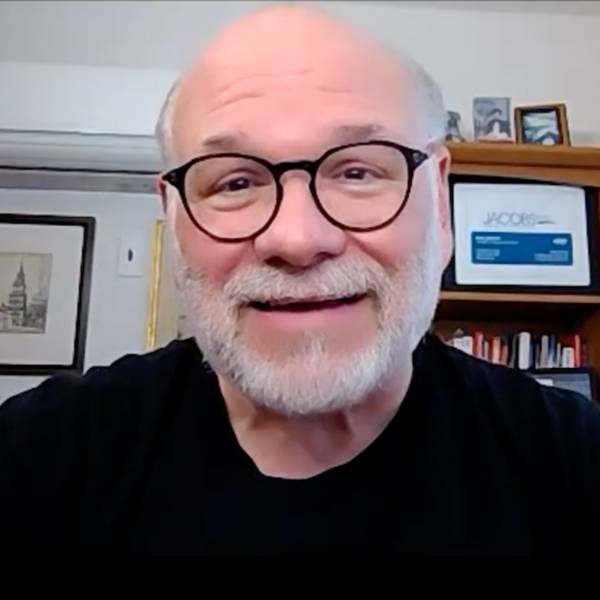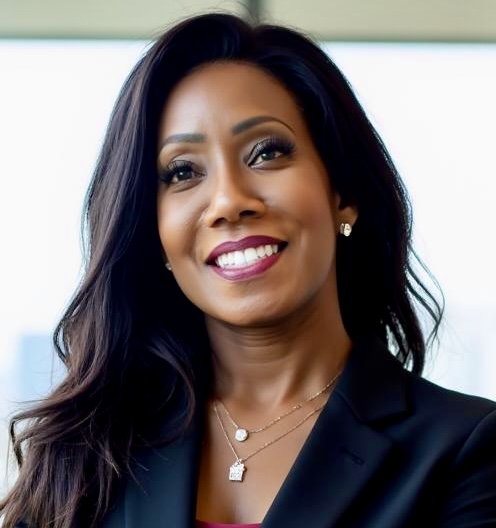Charlene Wheeless on Strength, Setbacks and Intention
By Ken Jacobs
September 2025
Charlene Wheeless isn’t a stranger to high-stakes leadership. During her career, she has navigated the C-suite, advised top executives and now helps others do the same through her leadership consultancy and as co-founder of CommsCollectiv.
But when she received a cancer diagnosis several years ago, Wheeless began a new journey — one that reshaped her view of strength, authenticity and what it truly means to lead.
In this conversation, she reflects on leading through illness, rebuilding after missteps and championing equity in challenging times.
We were going to interview you for Taking the Lead several years ago, but at that time, you were diagnosed with cancer. What did you learn about leadership from your cancer journey?
That’s a big question, and honestly, I’m still learning.
Cancer stripped me of everything I knew to be true and had worked so hard for, and what was left was just me. I thought I had always led authentically, but I realized I had been performing more than I knew. And that was the first big lesson: Leadership isn’t about performance — it’s about presence, transparency and authenticity.
I learned that I had to rethink my definition of strength. I always prided myself on showing up strong, but strength isn’t being the toughest person in the room. It’s being honest about your limits and still showing up. Leadership isn’t about proving yourself — it’s about being yourself, being vulnerable and inviting others to do the same.
Cancer taught me to lead with more grace, more connection and more intentionality.
The most powerful leaders aren’t the ones barking orders from the top. They’re the ones in the trenches, reminding people they can climb, even if they’re struggling too.
As a former equity and justice champion, what’s your advice for organizations who want to keep supporting DEI initiatives, at a time when they’re under pressure?
Don’t let fear or fatigue make your decisions for you.
Just to be clear, I’m still an equity and justice champion, even though I no longer work in that field.
We’re at a crossroads where performative efforts are being peeled back, and that’s not a bad thing. Organizations that want to keep supporting DEI are continuing to do so, and those that don’t aren’t.
This isn’t the time to disappear. It’s an opportunity to recommit with intention. Your values don’t change when you’re under pressure. To me, this is when you double down and show what you believe in and what you’re made of. And in time, the market, your employees and your customers will reward you for it.
Get specific. Support employee resource groups. Audit policies for equity gaps. Tie inclusive leadership to performance reviews. Speak up when it counts, not just when it’s comfortable.
The best DEI strategies are the ones that are baked in — not bolted on — and they apply to everyone. So, keep the work alive and make it real.
I don’t say this lightly. I know it’s hard for CEOs and other leaders right now, and that they’re under the microscope, having to make nearly impossible choices. But if there’s ever been a time to lead with courage and clarity, then it’s now.
What was your biggest leadership failure or faux pas, and how did you bounce back?
Oh, there are so many to choose from. I was hired to lead a large team through a major transformation. I came in with a strong mandate, a tight timeline and what I thought was a brilliant plan.
The problem? I didn’t listen.
I was so focused on proving myself and delivering results that I didn’t take the time to understand the team’s history, fears or insights. I didn’t build relationships. I made quick decisions without building trust.
The fallout was dramatic and real. People disengaged. There was a lot of grumbling. And I had to face the truth: I had led at them, not with them.
So, I stopped. I brought the team together, admitted where I went wrong, and started over. I asked more questions. I listened harder. I involved them in the process. And over time, we rebuilt and we won.
That experience taught me that leadership is about having the humility to listen, the courage to course-correct, and the strength to lead with people, not over them.
I was thrilled when you added Associate Certified Coach to your title. Why do you think so many communications pros make for effective coaches?
I earned my coaching certification through Georgetown University’s Leadership Coaching program because I wanted to do it the right way. Coaching isn’t just giving advice — that’s mentoring or consulting. Coaching is about deep listening, asking powerful questions and helping people uncover their own clarity, confidence and path forward. That takes training, not just talent.
I don’t believe all communicators automatically make great coaches. Being a strong communicator doesn’t mean you’re equipped to hold space for someone else’s transformation. It’s a different skill set. But I do believe that great communicators who are curious, self-aware and trained to listen, not just talk, can make exceptional coaches.
We’re attuned to nuance. We understand the power of language. We notice what’s said and what’s left unsaid. And many of us have spent our careers advising leaders, navigating change, and holding the tension between what’s said publicly and what’s felt privately.
Those are incredibly useful muscles for coaching, especially when combined with formal training and a genuine desire to serve others.
So yes, communications pros have a head start. But coaching is a practice, and if you want to do it well, then you have to treat it with the same rigor and respect you’d bring to any other leadership discipline.
Why leadership? Why not build a business around communications, where you’ve already had so much success?
It’s a fair question. Most people assumed I’d stay in the communications lane. But after three decades of communications success, I realized I didn’t just want to keep succeeding, I wanted to make my success significant.
And for me, the greatest significance comes from building better leaders.
Leadership is the lever that moves everything. If you can strengthen even one person’s leadership capability, you impact everyone they lead, which could be hundreds, even thousands of people. That ripple effect is powerful. It’s lasting. And it’s deeply fulfilling.
That’s why I chose to focus on leadership coaching and keynote speaking. Because it allows me to invest in people who are ready to stop chasing approval and start choosing purpose. People who want to lead differently, not just climb higher.
And along the way, I’ve learned that the most transformational leadership journey doesn’t start with others; it starts with ourselves. When we lead from internal alignment, with clarity and courage, we don’t just grow our careers, we expand our impact. That’s the kind of leadership I believe in. And that’s the work I was meant to do.
People may be surprised to see this question: What did being a Washington Redskins Cheerleader teach you about leadership?
I wrote a LinkedIn post about this recently. You can find it here.
Many people assume cheerleading is about performance, smiles, and sparkles. That’s part of it. But for me, it was also about preparation, presence, and power. It teaches you discipline, resilience, and how to not take life so seriously all the time.
As a cheerleader, I learned how to hold posture under pressure. How to command presence without saying a word. How to lead from the edge of the spotlight, not just the center of it.
I used the role to open doors to rooms that weren’t built for me. To challenge assumptions. And to redefine what leadership looks like.
It’s easy to dismiss cheerleading as fluff, but I didn’t become a leader in the boardroom.



